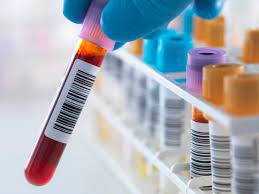10 causes of a high PSA level

Prostate cancer is the most important cause if a high prostate specific antigen (PSA). This is why the blood test is done.
But there are many other causes, as outlined below.
PSA is a protein produced by the prostate gland.
What is a normal PSA level?
Prostate specific antigen (PSA; men only) = <3.0 ng/ml
1. Prostate cancer
A high level of PSA can be a sign of prostate cancer. But your PSA level can also be raised in prostate conditions that are not cancer (see below).
A diagnosis of prostate cancer is not made on a PSA level alone.
What level of PSA indicates prostate cancer?
In general, a PSA level above 4.0 ng/mL is considered abnormal and may result in a recommendation for prostate biopsy.
Here are the many other causes of a raised PSA. Your doctor should take these into account when interpreting a raised PSA, especially when it is only a little raised.
2. Age and ethnicity
Older men’s normal PSA levels run a little higher than those of younger men. Normal levels also tend to vary a little between different ethnic groups – e.g. Black men generally have higher PSA levels compared to White men,
3. Prostate size
Because PSA is naturally produced at a very low level by the healthy prostate, a man with a larger-than-usual prostate may have a higher-than-usual PSA level. Your doctor should be able to detect this with a digital rectal examination (DRE), and will take this into consideration when looking at your PSA test results.
4. Prostatitis
Prostatitis is a painful condition in which the prostate is inflamed, swollen, and tender. It can be acute (short-term) or chronic (long-term). It is often caused by a bacterial infection, though sometimes the cause is unknown. In some cases, the PSA level may be raised by this condition.
5. Benign prostatic hyperplasia (BPH)
Different from simply having a larger-than-usual prostate, BPH is an enlarged prostate that is causing difficulty passing urine (weeing). It common among men over 50. Along with the swelling, a prostate with BPH may produce more PSA than usual.
6. Urological: urinary tract infection (UTI), procedures and prolonged urinary retention
A urinary tract infection (UTI), as well as irritation caused by medical procedures involving the urethra or bladder (e.g. cystoscopy or recent prostate biopsy), may irritate the prostate and cause it to produce more PSA.
Prolonged urinary retention can also raise the PSA level.
7. Prostate stimulation
Any prostate stimulation can trigger the release of extra PSA. This can include ejaculation and vigorous exercise, especially bike riding – but even having a DRE can raise PSA levels. For this reason, doctors usually draw blood before performing the DRE to avoid affecting the PSA test results.
8. Chronic kidney disease (CKD)
CKD may raise the PSA level a little, though the association of the two is not certain.
9. Medication
Some medications can artificially lower the PSA, such as finasteride or dutasteride.
10. Normal fluctuation
PSA levels can fluctuate naturally, and small increases may not necessarily indicate a problem.
Summary
We have described 10 causes of a high PSA level. Prostate cancer is the most important but there are many others. Your doctor needs to take them into account when interpreting a raised PSA level.

